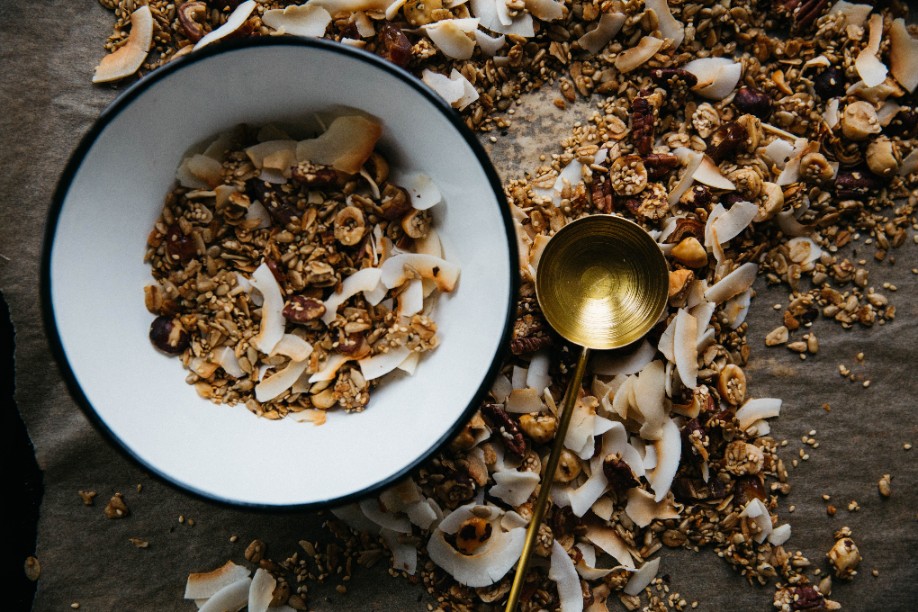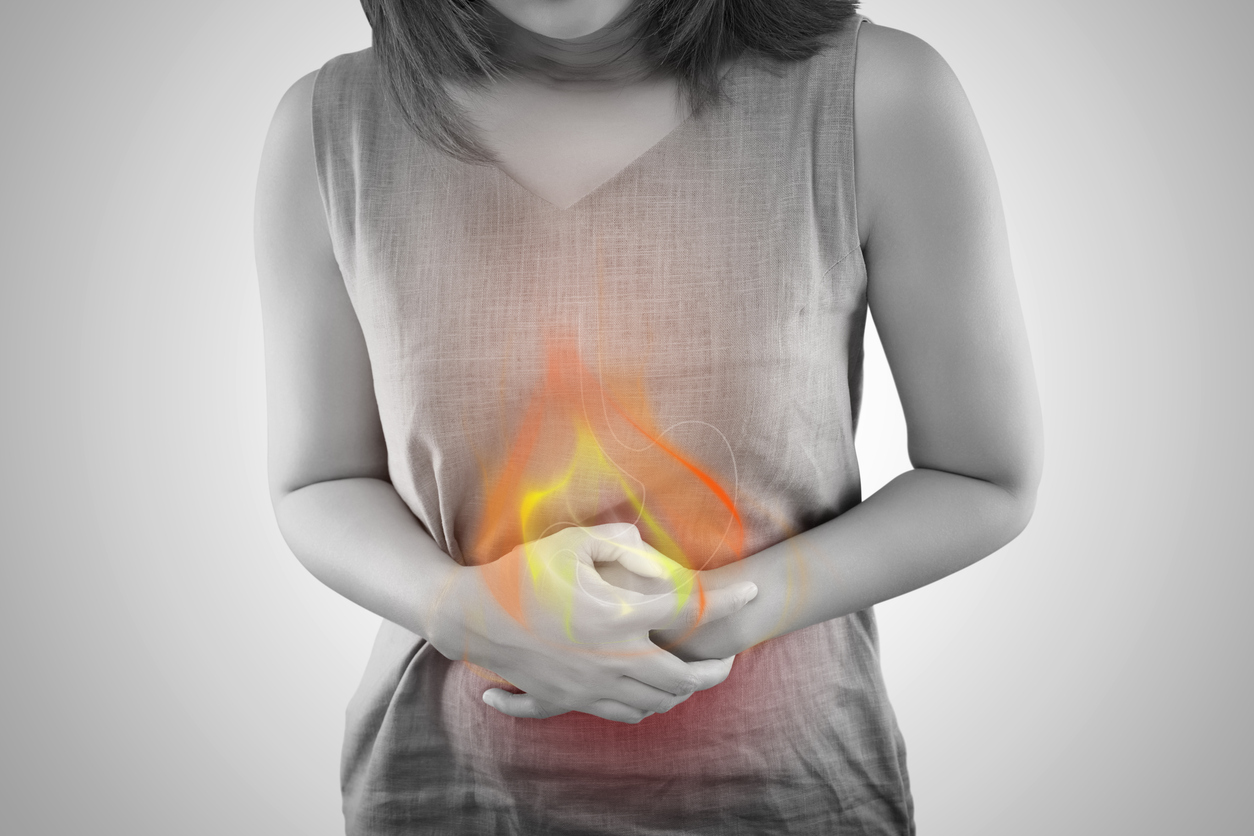You might think that only older folks need fibre, but almost everyone can benefit from plenty of it in their diet. You ask why? Fibre has been linked to lower risks of heart and colon diseases, low cholesterol levels and is essential for healthy and sustainable weight loss. Need we say more? Now that humans have a more sedentary lifestyle, we tend to choose convenient options like packed and processed foods and miss out on the many benefits of fibre from fresh fruits and vegetables. Read on to learn more!
What is Fibre?
Dietary fibre is a type of carbohydrate that includes all parts of plant foods that our body can’t digest or absorb. They pass relatively intact through the stomach, small intestine, and colon and then out of the body.
There are two types of fibre:
- Soluble fibre: This type of fibre dissolves well in water and gastrointestinal fluids, and once in the stomach and intestine, turns into a gel-like substance. Soluble fibre lowers cholesterol and blood sugar levels therefore reducing your risk of heart disease and diabetes. Soluble fibre can be found in a variety of foods like oats, peas, beans, apples, guava, barley and psyllium. We are sure you already want to add more of it to your plate!
- Insoluble fibre: This type of fibre promotes the movement of material through your digestive system and increases stool bulk. This helps with people who struggle with constipation or irregular stools. Eat more of fruits, nuts, seeds, vegetables, wheat bran and whole-grain foods to stock up on this type of fibre.
How Much Fibre Do You Need Daily?
The average recommended fibre intake per day ranges from 25 to 40 grams. Also, drink plenty of water as fibre works best when consumed with water, making the stool soft and bulky.
Why Should You Consider a High-Fibre Diet?
- Promotes weight loss: Trying to lose weight? Have a fibre-rich diet. High-fibre foods generally require more time to chew, which means that you will be less likely to overeat and will feel full for a longer time. Plus, fibre-rich foods are not as calorie-dense, meaning fewer calories for the same volume of food – a total win for weight loss.
- Normalizes bowel movements: If you have been suffering from chronic constipation, it is high time to fill your plate with dietary fibre. Fibre increases the weight and size of your stool while softening it, making it easier to pass. If you have watery stools, fibre helps to solidify it.
- Helps maintain bowel integrity: Because a high-fibre diet can reduce constipation, in turn, it reduces the risk of developing haemorrhoids, small pouches in your colon, that form when you actively strain during a bowel movement. These can become very painful and bleed – ouch!
- Boosts immunity: Did you know dietary fibre is a significant energy source for the bacteria in your intestine also known as your microflora? The bacteria in your gut is important in your maintaining your immunity, and fibre also affects innate immune responses of the gut mucosa both directly and indirectly.
- Lowers cholesterol: Soluble fibres combine with the bile acids and cholesterol in the digestive tract, thereby preventing them from being absorbed by the body. This, in turn, keeps cholesterol levels in the body in check. Remember, high cholesterol levels can lead to cardiovascular disease.
- Controls blood sugar levels: Bet you didn’t know that fibre can affect your blood sugar and your risk for diabetes. We’ll tell you why. Fibre, particularly soluble fibre, can slow the absorption of sugar, helping to improve blood sugar levels.
What Foods Should You Eat?
- Grains and whole-grain products like whole-grain bread, whole wheat flour, broken wheat and all-bran flakes etc.
- Load up on fruits like apricots, dates, prunes and raisins. Eat more berries such as blackberries, blueberries, raspberries and strawberries. Oranges, apple with skin, pear, and papaya are also excellent sources of fibre.
- Fill your plate with vegetables like spinach, fenugreek, guar gum, carrot .
- Legumes, beans and peas also contain fibre.
- Add more nuts and seeds such as almonds, whole flaxseed, pumpkin seeds, chia seeds, to your salads and smoothies.
What Foods to Avoid?
Refined or processed foods such as canned fruits and vegetables and pulp-free juice, white bread and pasta, and non-whole-grain cereals are lower in fibre content. The refining process removes the outer coat (bran) from the grain, snatching the fibre away. Removing the skin from fruits and vegetables also decreases the fibre content.
Tips for adding more fibre to your diet
- At breakfast: A high-fibre breakfast cereal can be a great way to keep you full. Opt for cereals with “bran” or “fibre” in the label. Alternatively, you can also add a few tablespoons of unprocessed wheat bran to your favourite cereal.
- Switch to whole grains: Swap your white bread and pasta with whole wheat options. You can also switch to brown rice if white rice is not making the cut to preventing constipation.
- Use fibre in baking: Substitute whole-grain flour for half or all of the white flour when baking. Whole-grain flour is heavier than white flour. You can also add crushed bran cereal or unprocessed wheat bran to muffins, cakes and cookies.
- Mix it up: Add fresh cut vegetables to soups and sauces.
- Include legumes: Add more beans, peas and lentils in your diet. Make nachos with refried black beans, lots of fresh veggies, whole-wheat chips and salsa.
- Eat fruits: Include at least one serving of fruit daily. Apples, bananas, oranges, pears, guava and papaya are all good choices.
- Eat fibre as snacks: Fresh and dried fruit, raw vegetables, whole-grain crackers are all good snack options. An occasional handful of nuts are also a healthy way to go.
Sure, adding eating fibre is excellent for your health but do not go overboard by adding too much fibre too quickly. Too much fibre in your diet can promote intestinal gas, abdominal bloating and cramping. Increase your fibre intake gradually over a few weeks to allow the bacteria in your gut to adjust to the change.
Talk to a nutritionist for more information on how to improve your diet on Veera. Book an appointment today!
Disclaimer: Content on Veera is provided for informational purposes only and is not intended as medical advice or as a substitute for medical advice given by a physician or trained professional.
References:[1] Brownlee, I. (2009, November 26). The physiological roles of dietary fibre. Retrieved September 17, 2020, from https://www.sciencedirect.com/science/article/pii/S0268005X09002501[2] Anderson, J., Baird, P., Jr, R., Ferreri, S., Knudtson, M., Koraym, A., . . . Williams, C. (2009, March 25). Health benefits of dietary fiber. Retrieved September 17, 2020, from https://onlinelibrary.wiley.com/doi/full/10.1111/j.1753-4887.2009.00189.x[3] Kaczmarczyk, M., Miller, M., & Freund, G. (2012, March 07). The health benefits of dietary fiber: Beyond the usual suspects of type 2 diabetes mellitus, cardiovascular disease and colon cancer. Retrieved September 17, 2020, from https://www.sciencedirect.com/science/article/pii/S0026049512000455[4] MJ. Albrink, T., Alexander, R., AM. Almazan, X., JW. Anderson, K., J. Anderson, F., FP. Anita, P., . . . Walker, A. (1979, January 01). Dietary fibre in foods: A review. Retrieved September 17, 2020, from https://link.springer.com/article/10.1007/s13197-011-0365-5[5] Home – British Nutrition Foundation. (n.d.). Retrieved September 17, 2020, from https://www.nutrition.org.uk/[6] Mayo Clinic. (n.d.). Retrieved September 17, 2020, from https://www.mayoclinic.org/[7] Vipercore-13. (2005, January 01). Dietary Fibre. Retrieved September 18, 2020, from https://www.nrv.gov.au/nutrients/dietary-fibre


















